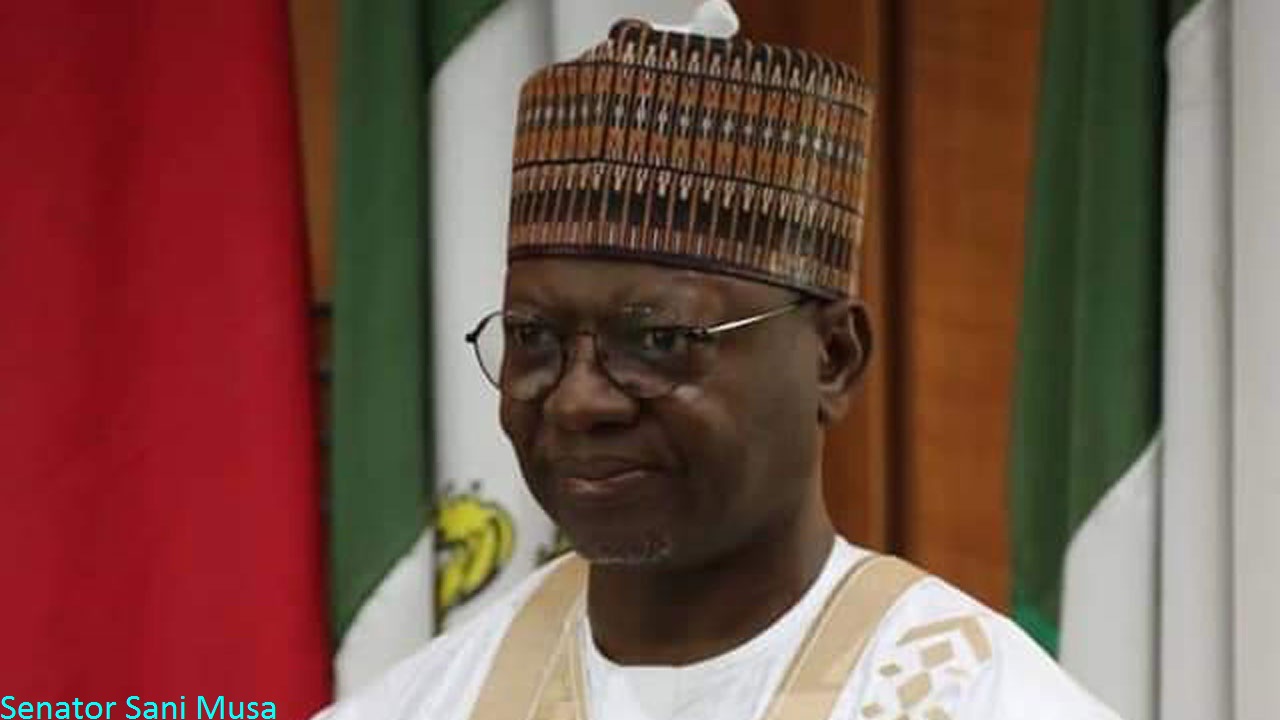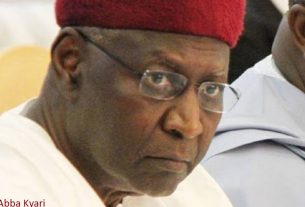The determination of Nigerians to kick out the anti-social media bill was unprecedented. It was a sucker punch well-delivered on Monday at the public hearing where its sponsor, Senator Sani Musa (Niger APC), expected Nigerians to gullibly buy into his vile campaign without a fight.
Nigerians gathered in their numbers after a well publicised public hearing notice on the obnoxious bill as NGOs, media organisations and other stakeholders mobilised to ensure the bill did not go beyond the public hearing. The awareness was quite unprecedented, owing to the fact that AIT.live of DAAR Communications Plc had earlier held a town hall meeting that equally opposed the bill.
If there was any iota of doubt remaining as to the general disposition of Nigerians against having a law that would regulate their use of social media it was cleared on Monday at the public hearing. The preponderance of opinion at the public hearing against the bill which was organised by the Senate committee was overwhelming. The bill received a fatal blow as stakeholders, including Amnesty International, Nigerian Union of Journalists (NUJ), ActionAid and civil society organisations (CSOs), asked the Senate to kill it without delay.
The predicament of the Senate in processing the “Protection from Internet Falsehoods, Manipulations and Other Related Matters Bill” was made worse during the public hearing.
At the public hearing on the controversial legislative piece, also tagged “Anti-social Media Bill” at the National Assembly, the picture became clearer that the Senate couldn’t continue with the Bill following the volume of criticisms it had attracted. Civil society organisations represented at the hearing were of the opinion that the Bill was completely unnecessary and that the Bill would only serve the interest of a few at the detriment of the generality of the populace.
The Bill, they said, would not only infringe on human rights, but that the way it is structured would violate human rights and freedom of speech. The opposition to the Bill became so much that the sponsor of the Bill, Senator Musa, swiftly found his way out of the venue of the public hearing.
Noticing that the disappearance of the Bill’s sponsor was causing some embarrassment, Chairman of the Senate committee on Judiciary, Human Rights and Legal Matters, Bamidele Opeyemi, came to the rescue by offering some explanations. According to him, Musa had some other legislative assignments to handle and so had to leave, adding that since the event was being broadcast live he should be monitoring.
Even before the public hearing was declared open by Senate President Ahmad Lawan, the fact that Senators had become terribly divided for and against the Bill was obvious. Opeyemi also informed the gathering, dominated by persons of critical minds against the Bill, that there was no common position among Senators.
From submissions made at the public hearing, none spoke in favour of the Bill apart from the Nigerian Army, which sought to be listed as one of the enforcers of the Bill when passed. Ceaseless shouts of disapproval marked the presentation of Major General Solomon Udoma, who represented the Chief of Army Staff, General Yusuf Buratai, in presenting the position of the Nigerian Army to the committee.
Among the most hated provisions of the Bill is that which provides for a fine of N5 million against an offender who fails to comply with an order of police to correct force statement. Hence with the comments of the committee chairman Opeyemi that the committee would not tinker with the people’s wishes, the anti-social media bill may be as good as having died a natural death.
Opeyemi, in his opening remarks at the public hearing, had told participants that the National Assembly would not shy away from making laws that would be acceptable and stand the test of time.
According to him, “It should be stated that the views of stakeholders matter to us because without your participation, this process will be incomplete. This, of course, is the beauty of democracy. This public hearing underscores the importance attached to the process. As a deliberate and responsive Senate, that our reports reflect with the yearnings of the citizenry.
“One of the high points of the bill to us is the myriad of reactions that trailed it. Our task this morning is to listen to your various perspectives to enable us have a fair hearing of your standpoint. Your views will form the basis of our recommendations to the Senate”
In his opening speech, Lawan, said he was pleased to be present because the bill is crucial and has generated a lot of interest, noting, “It is not unexpected because it is related to the Internet and it has affected our lives. Although it makes our lives easier but makes us unable to trust some information.”
Before he disappeared, Sponsor Senator Musa said he was a stakeholder in the Nigerian project hence the need for a legal framework that would guard social media space.
“I’m aware of Section 39(1) of the Constitution on freedom of expression. The bill is not a breach of fundamental human rights. It is in my interest to see it enacted.
“If this bill is acceptable to Nigerians, so be it. If it is not, I will continue to push on other grounds as national security is one factor that must be taken into consideration and this is the reason I feel the bill is important. With a population of about 200 million people, we tend to toy with national security. The protection of minors is zero. The bill helps with the protection of human dignity.”
He confessed that when he conceived the bill, he did not consult with anybody, as nobody would deny the use of social media as long as everyone continues to post what is reasonable but with a line, adding, “Nobody is saying you should not seek redress or criticise government
“A lot of people got married through social network. That is a very good, positive. You cannot deny it. Despite a high data figure, we don’t have a data protection law. There are infants, minors of 13 years holding smart phones. ISIS is recruiting people having smart phones. Why don’t we regulate it? Doing stories with images of another country, saying it is in our country. Is that right?”
“The bill is not another form of censorship. There are extant laws, if they are no more effective, we must be bold enough to bring new ones. It is to protect public interest. It is to protect child abuse, religious incitements, etc.
“I want to appeal to Nigeria, particularly the millenials that we have no other country to live in and depend on. I as the sponsor is saying, it must go through. It is not for me or you but the generations to come.”
The contribution of former presidential candidate, Omoyele Sowore, threw up more controversy. He charged the committee to look closely at the definition of falsehood and determine if the Bill is well intended to protect the people or to protect government.
“I am one of the first persons to establish what they may call an Internet news platform in Nigeria,” he submitted. “When we started, the first question we asked ourselves was, what is falsehood? Is something false because the government doesn’t like it? Or is it false because nobody wants to accept that it is true?
“I give you a very simple example; in this country, there was a time the president of the Federal Republic of Nigeria was sick and dying. We broke the news that he was terminally ill. It was described as false. If this bill had been passed at that time, I would have been sitting in jail until that president died. For five months the man was brain dead, but nobody had the ability and capacity to report it because it was described as false news. That is why I told you this bill is not about the protection of Nigeria, but the protection of those in power. It is as simple as ABC.”
Sowore looked left and right to locate the sponsor of the Bill to no avail and he declared, “I’m unhappy that the senator that proposed this bill is not here while I am speaking. I do not wish to insult him but the man doesn’t know what Internet is otherwise he would have understood that if you have a VPN you can mask your identity and say what you want to say and nobody will track down where you are, but because this bill was plagiarised from Singapore which he never denied.
“In Singapore things are working; you cannot bring something from where things are working to where things are not working.”
According to Sowore, the Bill is aimed at shooting down critics, further stating, “The fact is that the Nigerian government is the biggest purveyor of false news. It is categorically false for government to be telling us that the economy is working when it is not working”.
At this point, Opeyemi interrupted saying “I am not going to stop you but let me please reiterate the fact that you need to be mindful of the language”
The next presentation came f rom President of Nigerian Union of Journalists (NUJ), Mr. Chris Isigwuzo, who said the bill in summary sought to pigeonhole Nigerians from freely expressing themselves.
“The most cherished thing about democracy is the right of people to free expression,” he stated. “The Senate derives its legitimacy from the people. The NUJ is totally opposed to this bill. We want to advise the sponsors to withdraw same. It is unnecessary proliferation of laws. We have the Criminal Code, Penal Code and Cyber Crime Act, which have dealt with the issue of misinformation or disinformation.”
The Executive Director, International Press Centre (IPC), Mr. Lanre Arogundade, stated, “We will like to remind the sponsor and the committee that Nigeria is a signatory to African Charter and Human Rights and other international conventions that protect the rights to freedom of expression. We should not embark on the journey that will negate these principles. It is not about amending it but dropping it in its entirety. We should not compare to China because, for all intent and purpose, it is a dictatorship.”
Nigeria Communication Commission (NCC) said it does not regulate the content, noting, “We are only responsible for providing infrastructure. Certain provisions could be used to infringe on the rights of people. It gives too much power to the Nigerian Police to the extent of being the judge. Some provisions of the bill are already covered. It has general drafting anomalies. To the National Assembly, there maybe a complete redraft of the bill.”
An NGO official, Mr. Clement Nwankwo, said the bill sought to infringe on human rights, adding,
“Any talk about amending the provisions of the bill is not the view of a lot of Nigerians. Citizens suffer when police stop people to open their phones. If passed, it will encourage them to do much more. We have problem with human rights now. Handing this government with another bill will be very dangerous for us and our democracy. This bill should be discountenanced and dismissed.”
Nigerian Army representative and Deputy Chief of Policy and Planning, Udoma said the mission of the Nigerian Army is to win all land battles in the defence of Nigeria, noting, “This is to have a responsive army in constitutional roles. We welcome this bill for reasons of national security. Even in advanced democracies, we have government that take measures to promote national security.
“The effect of Internet falsehood, it undermines leadership; it can be used to disrupt the economy. It has serious impact on our operations, lower troops’ morale. It misinforms members of the military. We have submitted 31 points. We urge you to look at the bill again and consider it for the interest of Nigerian security.”
A representative of Law Reforms Commission said the bill’s long title didn’t indicate who the bill will protect, noting, “The bill has given enormous powers to the law enforcement agencies. We should not be in a hurry to criminalise every action because the courts and prisons are very full. There has to be a flow of sequence seeking legal redress. There are so many grammatical issues in the bill. We have to remember international conventions.”
Programmes Officer, Center for Democracy and Development, Mr. Yusuf Shamsudeen, said Nigeria was facing a lot of security challenges, adding, “It doesn’t provide a standard procedure for investigation. Too much is given to the police and it is operationally dubious. The police at the moment is not funded and not digital apathetic. The government can work with service providers.”
On his part, Country Director of Amnesty International Nigeria, Mr. Osai Ojigho, said the bill is a threat to freedom of expression, just as Chairman of Broadcasting Organisation of Nigeria (BON), said the bill is misleading and the provisions should be deleted. Also, Executive Director, YIAGA, said the 9th Assembly should halt the bill from further consideration as it contravenes provisions of international instruments, stating, “Any attempt to regulate will infringe on the rights of young women with reference to rape. All of you are beneficiaries of democratic process. Any attempt to regulate this space diminishes the level of our democratic process. It will remove food from the table of young people.
“I want to plead with you that you trash this bill because it goes beyond infringing with human rights, but diminishes the entire sense of nationhood. As a senate committee, call on your colleagues to kill this bill.”
DAAR Communications’ Managing Director, Mr. Raymond Dokpesi Jnr, stated, “We are completely opposed to this bill. This bill should be trashed now as opposed to being amended.”
Chief of Staff tat Economic and Financial Crimes Commission (EFCC), Esa Onoja, said the commission was neither for or against the bill. He, however, said giving the police enforcement of the bill is an anomaly, adding, “If this bill is to go forward, there are many provisions that can be aggregated. We all know the dangers of fake news, the exact boundary between free speech and falsehood which the NASS should bear in mind.”
Convener of Concerned Citizens, Mr. Deji Adeyanju, said there was need to be mindful of the pit being dug by the bill while ActionAid Nigeria said while it did not support peddling of falsified information online and offline, as a non-governmental organisation promoting social justice and human rights, it was concerned that the provisions of the Bill, rather than protect the interest of the citizens, would infringe on rights and democratic expression of Nigerians.
“The principle of free speech maintains that for effective democracy to exist, no individual should be prevented from publicly speaking out on any subject that is in the public interest,” an official stated. “With the Protection from Internet Falsehood and Manipulations Bill, the rights of the citizens to freely debate the merits of any situation that affects their wellbeing will be limited, thus reducing citizens’ participation in governance due to fear of possible prosecution.”
Having analysed the Bill, ActionAid said it submitted a memorandum to the Senate Committee on Judiciary, Human Rights and Legal Matters on Friday March 6, 2020 highlighting their observations and recommendations: “The provisions of the Bill contradict the Nigerian Constitution which protects the right to freedom of expression and provides that any restriction to this right must be justifiable in a democratic society.
“There are already existing laws, acts and agencies responsible for handling issues raised in the Bill. The 2015 Cybercrimes law already criminalises a broad range of online interactions. The Bill did not clearly define the term ‘Falsehood’ and provides a wide net for misinterpretation and validation of the increased clampdown on investigative journalism and human rights activists in the country as seen in recent times.
“The Bill claims to promote peace and unity, but the language of the bill appears to create vague criminal offenses that would allow the authorities to prosecute objective criticism of the government. The Bill gives absolute power to the police and it seeks to allow law enforcement agencies to order Internet service providers to disable internet access; this is typical of an authoritarian regime.”
It recommended that as defenders of the constitution, Nigerian lawmakers should truly serve the interest of their constituents by ensuring that the rights of Nigerians to objective criticism of the government without fear of prosecution and censorship are upheld.
“As an alternative to creating new laws, existing laws, such as the cybercrimes law should be reviewed to serve the interest of the public. The mandates and functions of relevant agencies should be strengthened to implement existing laws. In updating existing laws, terms and scope of application should be clearly defined.
“Government should be responsive to objective criticism by the media as the fourth estate, as this is the fulcrum that oils the wheels of true democracy. Government should focus on bridging the digital divide between urban and rural centres as access to the Internet is no longer a luxury but a necessity in a digitised world.”
Flowing from the foregoing, ActionAid Nigeria opined that the Bill did not seek to protect citizens, rather that it would serve political interest, and called on the Senate to halt further considerations of the Bill and dispose it because an infringement on freedom of expression is an infringement on the rights of the citizens.
In his closing remarks, Chairman on Senate Committee on Judiciary, Human Rights and Legal Matters, Opeyemi, stated, “We have not taken a stance as a Senate. We will take our time to go through every memorandum and based on this do a report. This is a private member bill. The Senate cannot be held responsible for a member bill. We will advise the Senate based on our findings. No one has any firm position on this. We know the eyes of the world are on us.”
The Guardian





